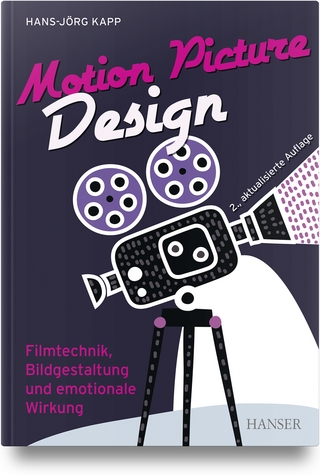
Propaganda and Popular Entertainment in the USSR
The Mezhrabpom Studio
Seiten
2019
I.B. Tauris (Verlag)
978-1-78076-716-1 (ISBN)
I.B. Tauris (Verlag)
978-1-78076-716-1 (ISBN)
A comprehensive account of the influential Mezhrabpom Soviet film studio, its production stories, political propaganda and international and creative impact.
The Mezhrabpom (International Workers’ Relief) studio was responsible for Soviet avant-garde classics such as Pudovkin’s The End of Saint Petersburg (1927) and Storm Over Asia (1928) and existed from 1924 until its closure in 1936. Employing an unusual – for the time – combination of Russian filmmakers and foreign communists, it produced some of the most popular films in the USSR in the first half of the twentieth century. Jamie Miller details the history of this organisation, often at the forefront of technological innovations, and how it both provided a source of creative talent for the state and established a crucial relationship with Germany and the West to fulfil Soviet propaganda ambitions. He reveals the multi-faceted reasons that the studio managed to preserve its autonomy and status, despite relentless attacks over suspicions that it put profit above ideology: unearthing the systems of power distribution, personal connections and patronage that kept it afloat. Unique in its visionary genre and style experiments, Mezhrabpom also stood out as an early pioneer in the fight against fascism, when the USSR and wider communist movement failed to act. Miller therefore provides a rich account of the production stories and the industrial and political context behind a major cultural institution in the Soviet story, one fundamental to our understanding of world cinema history.
The studio intended to make popular literary adaptations, based on the actor-centred influences of the Moscow Art Theatre and Russia's pre-Revolutionary cinema. These movies and its productions of avant-garde classics were among some of the most popular films in the USSR in the first half of the twentieth century. Jamie Miller details the history of this organisation, arguing that personal connections and patronage among the Bolshevik political and cultural elite were vital in the creation and sustenance of the studio. They gave the organisation the opportunity to make box office hits and create outstanding films in a distinctive Mezhrabpom visual style. Miller recounts how the studio was often at the forefront of technological innovations, and how it both provided a source of creative talent for the state and established a crucial relationship with Germany and the West to fulfil Soviet propaganda ambitions. Mezhrabpom also stood out as an early pioneer in the fight against fascism, when the USSR and wider communist movement failed to act. Miller therefore provides a rich account of the production stories and the industrial and political context behind a major cultural institution in the Soviet story, one fundamental to our understanding of world cinema history.
The Mezhrabpom (International Workers’ Relief) studio was responsible for Soviet avant-garde classics such as Pudovkin’s The End of Saint Petersburg (1927) and Storm Over Asia (1928) and existed from 1924 until its closure in 1936. Employing an unusual – for the time – combination of Russian filmmakers and foreign communists, it produced some of the most popular films in the USSR in the first half of the twentieth century. Jamie Miller details the history of this organisation, often at the forefront of technological innovations, and how it both provided a source of creative talent for the state and established a crucial relationship with Germany and the West to fulfil Soviet propaganda ambitions. He reveals the multi-faceted reasons that the studio managed to preserve its autonomy and status, despite relentless attacks over suspicions that it put profit above ideology: unearthing the systems of power distribution, personal connections and patronage that kept it afloat. Unique in its visionary genre and style experiments, Mezhrabpom also stood out as an early pioneer in the fight against fascism, when the USSR and wider communist movement failed to act. Miller therefore provides a rich account of the production stories and the industrial and political context behind a major cultural institution in the Soviet story, one fundamental to our understanding of world cinema history.
The studio intended to make popular literary adaptations, based on the actor-centred influences of the Moscow Art Theatre and Russia's pre-Revolutionary cinema. These movies and its productions of avant-garde classics were among some of the most popular films in the USSR in the first half of the twentieth century. Jamie Miller details the history of this organisation, arguing that personal connections and patronage among the Bolshevik political and cultural elite were vital in the creation and sustenance of the studio. They gave the organisation the opportunity to make box office hits and create outstanding films in a distinctive Mezhrabpom visual style. Miller recounts how the studio was often at the forefront of technological innovations, and how it both provided a source of creative talent for the state and established a crucial relationship with Germany and the West to fulfil Soviet propaganda ambitions. Mezhrabpom also stood out as an early pioneer in the fight against fascism, when the USSR and wider communist movement failed to act. Miller therefore provides a rich account of the production stories and the industrial and political context behind a major cultural institution in the Soviet story, one fundamental to our understanding of world cinema history.
| Erscheint lt. Verlag | 25.6.2020 |
|---|---|
| Sprache | englisch |
| Maße | 156 x 234 mm |
| Themenwelt | Kunst / Musik / Theater ► Film / TV |
| Sozialwissenschaften ► Politik / Verwaltung | |
| ISBN-10 | 1-78076-716-1 / 1780767161 |
| ISBN-13 | 978-1-78076-716-1 / 9781780767161 |
| Zustand | Neuware |
| Haben Sie eine Frage zum Produkt? |
Mehr entdecken
aus dem Bereich
aus dem Bereich
meine Reise durch das Hitchcock-Universum
Buch | Softcover (2023)
dtv Verlagsgesellschaft
13,00 €
Filmtechnik, Bildgestaltung und emotionale Wirkung
Buch | Hardcover (2024)
Carl Hanser (Verlag)
44,99 €


